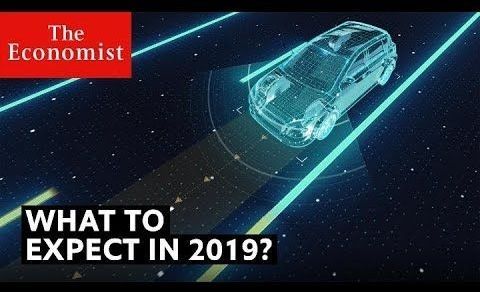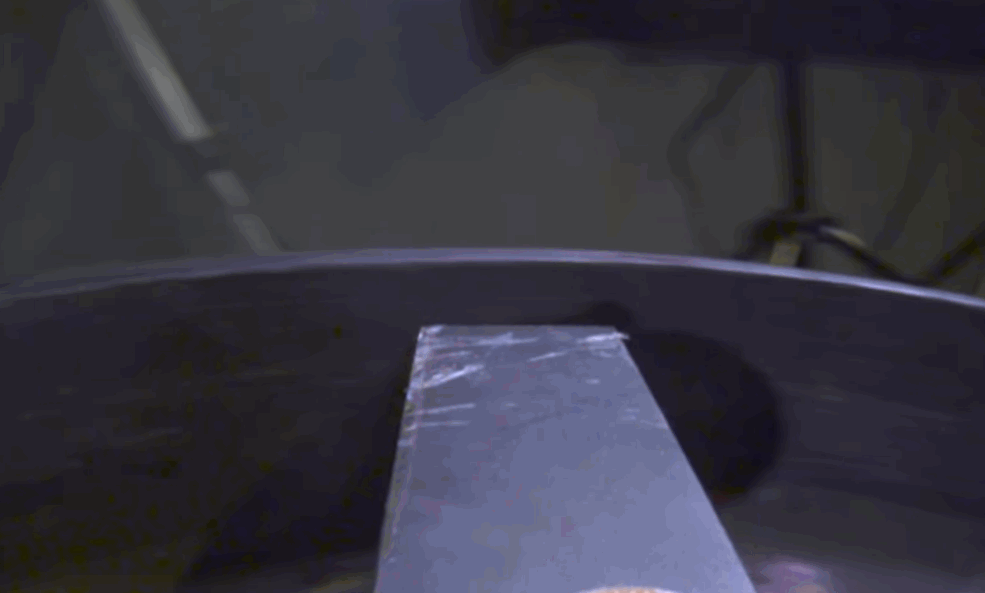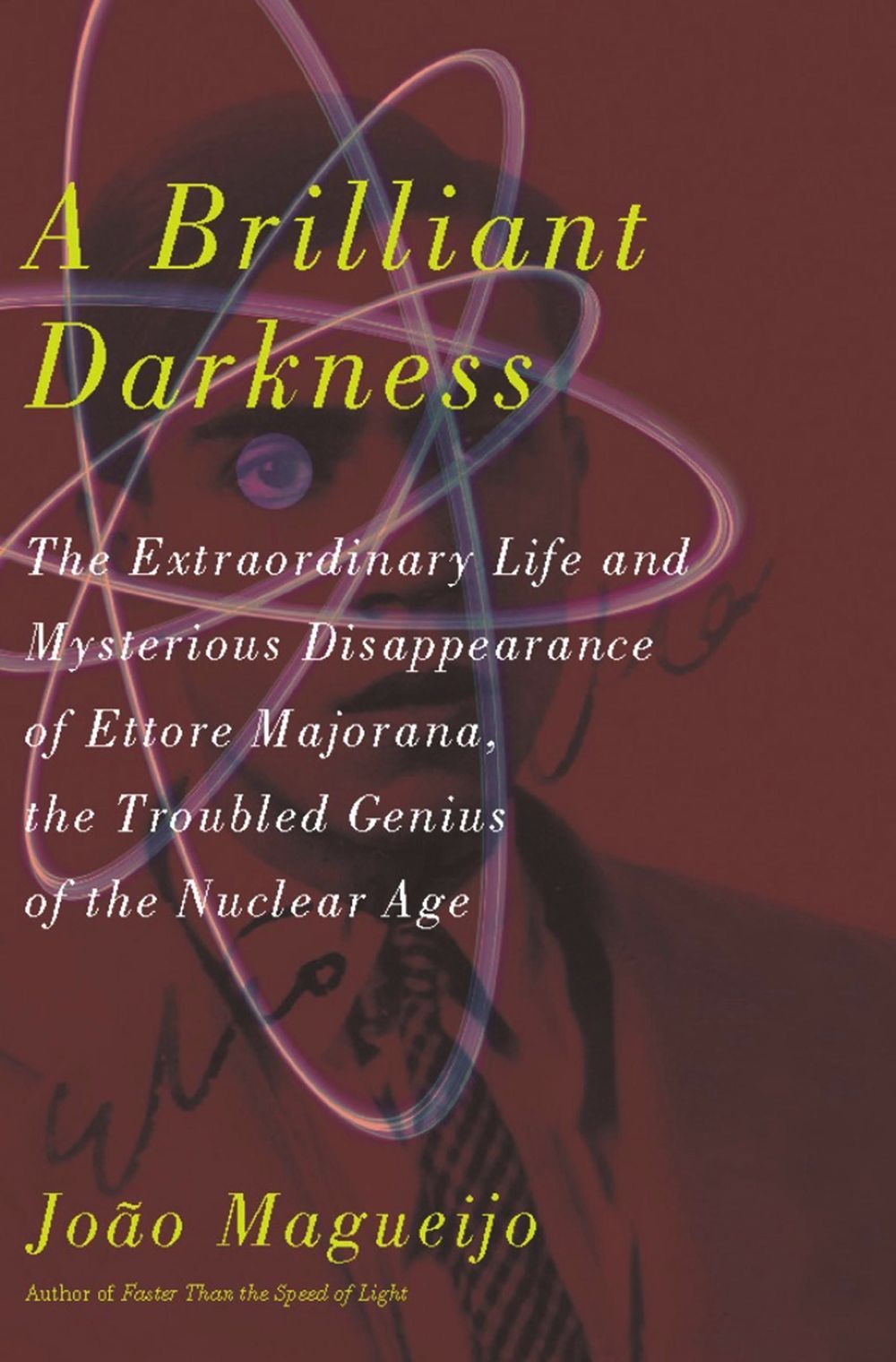On #NewYearsEve, our New Horizons spacecraft will fly within 2,220 miles of this object, providing the first close-up look at such a pristine building block of the solar system. Get the latest update: http://pluto.jhuapl.edu/


On #NewYearsEve, our New Horizons spacecraft will fly within 2,220 miles of this object, providing the first close-up look at such a pristine building block of the solar system. Get the latest update: http://pluto.jhuapl.edu/

Power suits, robotaxis, Leonardo da Vinci mania—just a few of the things to look out for in 2019. But what else will make our top ten stories for the year ahead?
Click here to subscribe to The Economist on YouTube: https://econ.st/2xvTKdy
What will be the biggest stories of the year ahead?
00:35 — 10 — Powered Clothing.
In 2019 power dressing will take on a whole new meaning when this strange-looking clothing hits the market. Not so much high fashion as high tech, it’s a suit with built-in power that will literally get people moving. Part of the wearable robotics revolution, the suit is made up of battery-powered muscle packs which contract just like a human muscle to boost the wearer’s strength. With the global population of over 60s expected to more than double by 2050, and retirement age increasing, there’s no shortage of potential markets. But don’t expect the suits to ease the burden on aching limbs and overstretched health services anytime soon — as these suits don’t come cheap. According to the manufacturer they’ll retail for around the cost of a bespoke tailored suit.
02:13 — 9 — The year of cheap flights.
2019 will be the year low-cost long-haul travel takes off. You’ll be able to buy a ten thousand mile flight from London to Sydney for around $350 and this is why. The world will boast two new state-of-the-art mega hub airports and competition between them will drive down the cost of flying. Daxing Airport outside Beijing is due to open in 2019 and will feed growing demand for air travel in China. Beijing already has one of the world’s biggest airports and for China this new mega hub will send an important message to the world. Rivaling Daxing as a national symbol of global prestige will be a new mega hub airport in Istanbul. Opened in 2018 it covers a staggering 26 square miles — an area larger than the island of Manhattan. And in 2019 consumers will again be the beneficiaries of a state sponsored economic push. But the low fares offered by competition between these hubs could be short-lived.
04:06 — 8 Stonewall riots at 50.
In 2019 LGBT communities will mark the anniversary of a seminal event — it will be 50 years since patrons at New York gay bar, The Stonewall Inn, resisted police attempts to arrest them. The resulting Stonewall riots kick-started the modern gay rights movement. In many countries the laws that continue to allow intolerance and inequality have their roots in religion. But one former British colony has given hope to the global movement for change. In 2018 India decriminalized homosexuality and gay rights campaigners hope 2019 will be the year other former British colonies follow suit. In February Kenya’s High Court will rule on whether to decriminalize same-sex intimacy which is currently punishable with up to 14 years in prison. Campaigners hope that decriminalization could start a domino effect across Africa.

The Space Force would constitute the sixth branch of the US armed forces.
The news: During a meeting with the National Space Council today, President Donald Trump directed the Department of Defense and the Pentagon to begin work on the creation of the Space Force. He stated, “‘We are going to have the Air Force and we’re going to have the Space Force, separate but equal.”
Some background: This isn’t the first time Trump has brought up this idea. He has continued to express interest in the idea during visits to West Point and in speeches to military members.

2019 is off to a great start.
A Danish startup called Organic Basics claims its underwear will remain fresh through weeks of wear, eliminating the need for frequent washing.
And this could be a boon for the environment — if it’s actually true.
When your sweat meets your clothing, it creates an ideal environment for bacteria. It’s this bacteria that actually produces a foul-smelling odor.

A computing system that mimics neural processing could make artificial intelligence more efficient — and more human.


People (including myself) love slow-motion videos and we also tend to love watching things being destroyed. Lawnmowers are really, really good at destroying things, but capturing its destructive power with a high-speed lens isn’t the easiest thing in the world… unless you flip it upside down and strap the camera right to the blade.
Now, I wouldn’t want to be the one to tackle such a project, but the good news is that a YouTuber by the name of Tesla500 has already done all the hard work. The over 20-minute-long video shows the building of the rig itself as well as lots and lots of random household objects meeting their end in super slow motion.


How math helps us solve the universe’s deepest mysteries
One of the great insights of science is that the universe has an underlying order. The supreme goal of physicists is to understand this order through laws that describe the behavior of the most basic particles and the forces between them. For centuries, we have searched for these laws by studying the results of experiments.
Since the 1970s, however, experiments at the world’s most powerful atom-smashers have offered few new clues. So some of the world’s leading physicists have looked to a different source of insight: modern mathematics. These physicists are sometimes accused of doing ‘fairy-tale physics’, unrelated to the real world. But in The Universe Speaks in Numbers, award-winning science writer and biographer Farmelo argues that the physics they are doing is based squarely on the well-established principles of quantum theory and relativity, and part of a tradition dating back to Isaac Newton.
